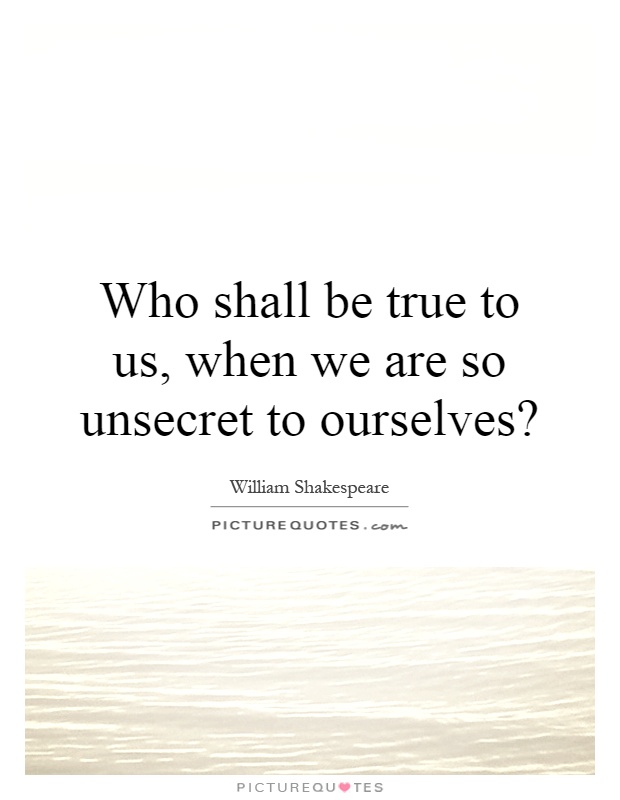Who shall be true to us, when we are so unsecret to ourselves?

Who shall be true to us, when we are so unsecret to ourselves?
In the famous play "Julius Caesar" by William Shakespeare, the character Cassius speaks the line, "Who shall be true to us, when we are so unsecret to ourselves?" This profound statement delves into the complexities of human nature and the difficulty of truly knowing oneself.Cassius is reflecting on the idea that we often hide our true selves from others, putting on masks and personas to fit in or protect ourselves. However, he also acknowledges that we are often unable to hide our true selves from ourselves. We are our own harshest critics, aware of our flaws, insecurities, and innermost thoughts. This self-awareness can be both a blessing and a curse, as it can lead to self-doubt and inner turmoil.
The question posed by Cassius raises the issue of trust and authenticity. If we are unable to be completely honest with ourselves, how can we expect others to be true to us? How can we trust others to see us for who we truly are when we struggle to do so ourselves? This dilemma speaks to the complexity of human relationships and the challenges of forming genuine connections with others.
Shakespeare often explores themes of deception, betrayal, and self-deception in his works, and this line from "Julius Caesar" is no exception. The characters in his plays are often faced with moral dilemmas and conflicting loyalties, forcing them to confront their own inner demons and wrestle with their true selves.
Ultimately, the question posed by Cassius is a timeless one that continues to resonate with audiences today. It challenges us to reflect on our own authenticity and the ways in which we present ourselves to the world. It reminds us that true connection and trust can only be achieved when we are willing to be honest and vulnerable with ourselves and others.












 Friendship Quotes
Friendship Quotes Love Quotes
Love Quotes Life Quotes
Life Quotes Funny Quotes
Funny Quotes Motivational Quotes
Motivational Quotes Inspirational Quotes
Inspirational Quotes